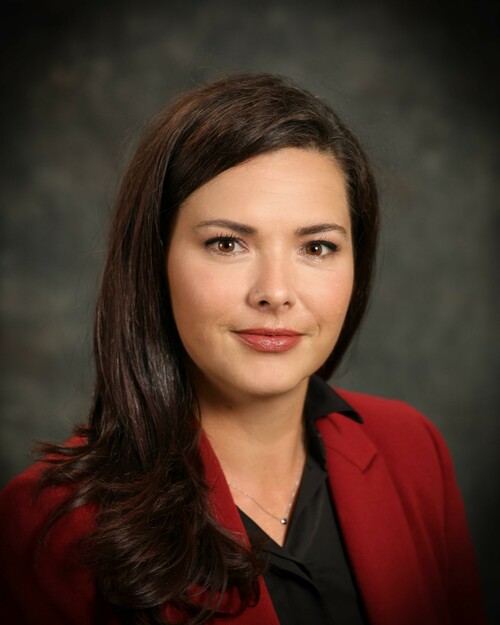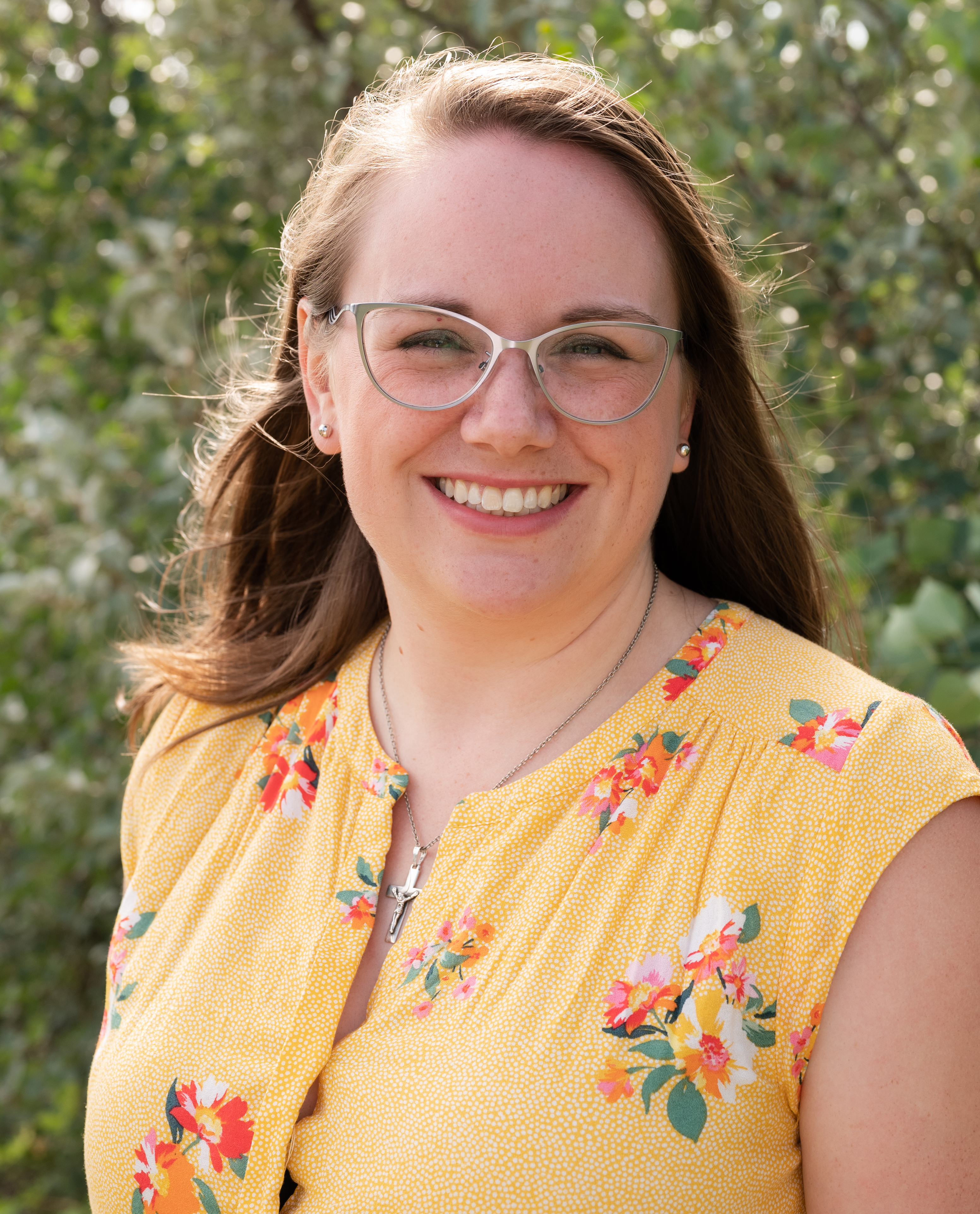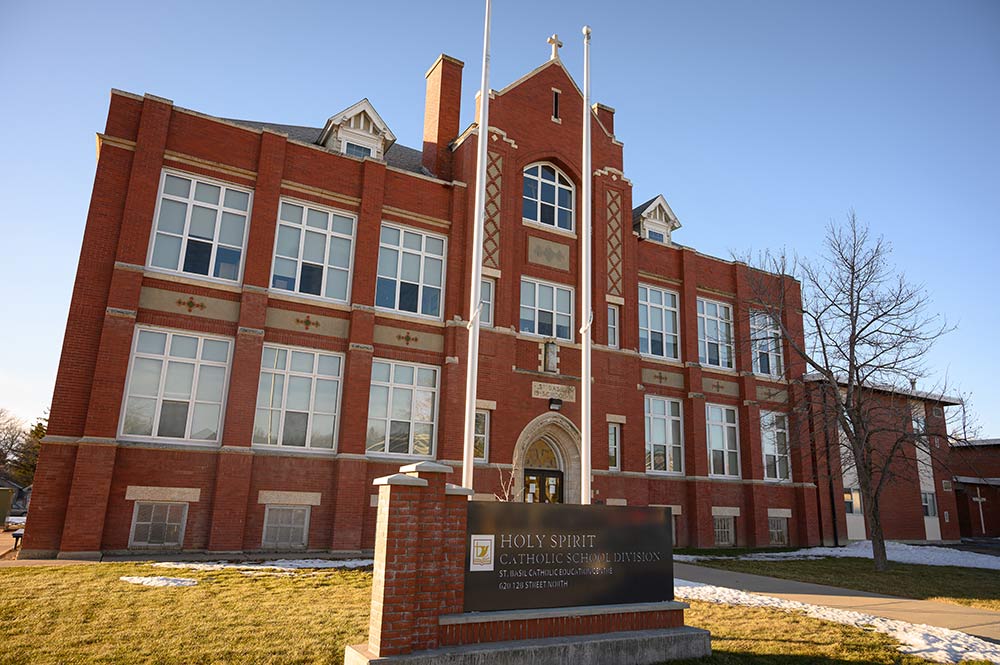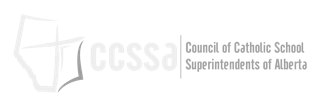- Details
- Written by Bishop William McGrattan
- Category: Pastoral
As part of the global Church’s preparation for the 2023 assembly of the Synod of Bishops each diocese throughout the world has summarized their experience of the first phase of reflection and dialogue on Church: Communion, Participation, and Mission (“synodal process”). It was a process of prayer, listening, and dialogue in each local Church guided by the Holy Spirit. In the Assembly of Western Catholic Bishops (AWCB) Synod Synthesis report the importance of faith education, formation and catechesis. “Access to Catholic Schools is varied from province to province, but where schools exist, they are generally expected to be responsible for catechesis. Greater collaboration between parish and school is needed to assist parents in assuming this role.” In order to achieve this goal, the report states, “suggestions focus on improving faith formation in Catholic schools, strengthening the connection between schools and parishes, and supporting school teachers in living their faith”.
- Details
- Written by Bonnie Annicchiarico
- Category: Testimonial
This past year I had the remarkable opportunity to be part of the Diocese of Calgary’s synodal leadership team. The task was enormous; the way forward was uncertain and the learning curve was straight up! Though this territory was uncharted for me, I was inspired immediately when I read the Vatican documents explaining the synodal process. The goals were aspirational and shared through the language of scripture and faith. I was moved. I was hooked! I remember thinking to myself (and saying to others), “How do these guys at the Vatican have the ability to really ‘get us’? To understand what we need and long for? How do they express it in words that clarify God’s love and the mission of the Church in such an effective way?’’
- Details
- Written by ACSTA - Holdsworth - Brian Holdsworth
- Category: Uncategorised
ACSTA Website Tutorial
Rich Text Editor Tutorial
- Details
- Written by ACSTA - Holdsworth - Brian Holdsworth
- Category: Uncategorised
Catholic schools are part of the dual system of public education in Alberta. They are publicly-funded, and operate under the same provincial legislation (the Education Act) as non-Catholic public schools. Catholic schools have been operating in Alberta since the 1840's, before Alberta became a province of Canada.
But what is unique about Catholic schools? The Declaration on Christian Education, published in 1965 following the Second Vatican Council, describes the purpose of a Catholic school as trying "to relate all of human culture to the good news of salvation, so that the light of faith will illumine everything that the students will gradually come to know about the world, about life, and about the human person." Parents, teachers, administrators, trustees, and the entire Catholic community are entrusted in this vital mission.
Parents are recognized as the primary educators of their children, and they choose how their children will be formally educated. Teachers play a crucial role in leading students to an understanding of the world which is illuminated by "the light of faith", and administrators create the environment in which this understanding takes place. The Catholic community is involved through local parishes, which work closely with schools in areas such as sacramental preparation; individually, through the allocation of property taxes; and through the Church, represented by the local Bishop, who is responsible for approving the religious education program taught in the school.
Catholic trustees have a significant role within this partnership. They oversee the operation of their local school district on behalf of the provincial government, and on behalf of the Catholic community who elect them. As such, they are both political and faith leaders in their communities. To support trustees in this unique role, and provide an opportunity to discuss and report on issues significant to Catholic education across the province, the ACSTA was formed in 1966.
As an incorporated society, the ACSTA operates under a set of objectives, and is guided by a mission statement which is developed and approved by the membership.
Today, the Alberta Catholic School Trustees' Association (ACSTA) represents all 24 Catholic anglophone and francophone school boards, and 153 trustees, who in turn serve more than 183,500 students in 450 Catholic schools. Our membership includes the Catholic districts of Yellowknife in the Northwest Territories, Yukon Territory and Lloydminster, which is designated as both an Alberta and Saskatchewan jurisdiction. The non-denominational St. Paul Education Regional Division is also a member of ACSTA.
- Details
- Written by ACSTA - Holdsworth - Brian Holdsworth
- Category: Uncategorised
- Details
- Written by ACSTA - Holdsworth - Brian Holdsworth
- Category: Uncategorised
Bylaws
Policy Handbook
- Policy Handbook - UPDATED VERSION COMING SOON
Strategic Plan
- Details
- Written by ACSTA - Holdsworth - Brian Holdsworth
- Category: Uncategorised
The Member Dashboard provides access to relevant resources and documents for members and board members. Access is granted based on permissions available to your particular audience group.
- Annual General Meeting
- Board of Directors Meetings
- Board Governing Documents (Bylaws, Policy Handbook and Strategic Plan)
- Committees
- Catholic Ed Talks Archives
- Budgets
- Expense Claim Form
- MLA Meeting Follow-Up Report
- Yearly ACSTA School Division Director Reports
Resources:
- Details
- Written by ACSTA - Holdsworth - Brian Holdsworth
- Category: Uncategorised

Brendan Cavanagh, Executive Director
Email: This email address is being protected from spambots. You need JavaScript enabled to view it.
ACSTA Office: 780-484-6209

Dawn Miller, Governance Manager
Email: This email address is being protected from spambots. You need JavaScript enabled to view it.
ACSTA Office: 780-484-6209

Charlotte Taillon, Director of Communications & Government Relations
Email: This email address is being protected from spambots. You need JavaScript enabled to view it.
ACSTA Office: 780-484-6209

Jenny Connelly, Communications Coordinator
Email: This email address is being protected from spambots. You need JavaScript enabled to view it.
ACSTA Office: 780-484-6209

Lorraine Simi Chellakudam, Office and Event Coordinator
Email: This email address is being protected from spambots. You need JavaScript enabled to view it.
ACSTA Office: 780-484-6209





